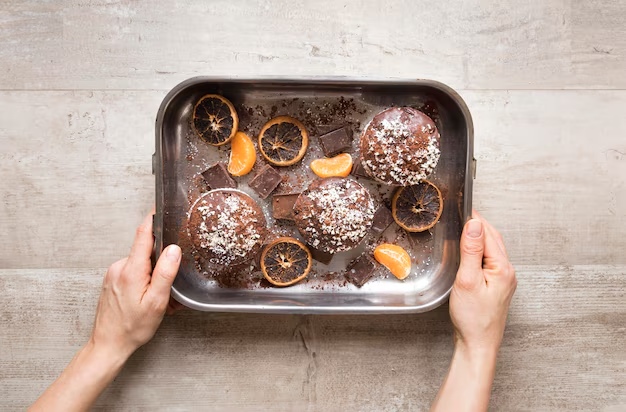🥩 How Long is Too Long? Storing Cooked Meat in Your Refrigerator
Cooked meat is a staple in many households, offering convenience during busy weekday nights and transforming into delicious leftovers for lunch. But the burning question remains: How long can you safely keep cooked meat in the refrigerator? Understanding the principles of food storage and shelf life is critical not only for preserving the flavor and quality of your meals but also for minimizing the risk of foodborne illness. Let's dive into the essentials and nuances of refrigerating cooked meat.
🍗 The Basics of Refrigerating Cooked Meat
Understanding Shelf Life
Shelf life refers to how long food retains its quality and safety over time. When it comes to cooked meat, several factors come into play:
- Type of Meat: Different meats have varying shelf lives. Poultry, for example, tends to spoil faster than beef or pork.
- Storage Conditions: Temperature plays a crucial role. Your refrigerator should be set below 40°F (4°C) to slow bacterial growth.
- Original Freshness: The initial quality of the meat before it was cooked can impact how long it stays good.
- Handling and Storage: Improper handling or storage, such as letting cooked meat sit out too long before refrigerating, can shorten its shelf life.
Guidelines for Different Types of Meat
Here's a general guideline for how long you can store cooked meat types in the refrigerator:
- Chicken and Turkey: Up to 3–4 days
- Beef and Pork: Up to 3–5 days
- Ground Meats: 1–2 days
- Fish and Seafood: 1–2 days
While these time frames are generally accepted, individual variations may affect spoilage rates, so always use discretion and sensory checks before consuming.
🥩 How to Properly Store Cooked Meat
Best Practices for Storage
To extend the life of your cooked meats, consider these practices:
- Cool It Quickly: Transfer food to the refrigerator within two hours of cooking to curb bacterial growth.
- Use Airtight Containers: Store meat in airtight containers or wrap tightly in aluminum foil or plastic wrap to prevent exposure to air and bacteria.
- Labeling: Always label your storage containers with the date of storage to keep track of their age.
Recognizing Spoiled Meat
Aside from time, recognize the signs of spoilage:
- Smell: A sour, rancid odor is a major red flag.
- Texture: A slimy or sticky feel suggests spoilage.
- Appearance: Discoloration or mold growth means it's time to discard.
The Freezer Option
To extend shelf life even further, freezing is another option. Freezing can keep cooked meat safe for months and is ideal for planning meals in advance. However, always thaw meat safely, ideally in the refrigerator overnight, to maintain its quality.
🍲 Related Storage Topics and Tips
Understanding Cross-Contamination
Cross-contamination can occur when harmful bacteria spread between food items. Always use separate containers and utensils for raw and cooked meats and wash hands thoroughly after handling raw meat.
The Icebox and Meal Prep
If you're into meal prepping, knowing how to store cooked meat efficiently is crucial. Use meal prep containers with sections to keep foods separate and safe.
Reheating Cooked Meat
Proper reheating is key to ensuring that leftover cooked meats are safe to eat:
- Temperature Matters: Reheat cooked meats to at least 165°F (74°C) as a safety measure.
- Microwave Tips: If using a microwave, cover the meat and rotate it to heat evenly, preventing cold spots where bacteria can thrive.
📝 Quick Tips for Storing and Using Cooked Meat Safely
Here’s a handy bullet list to summarize:
- 🕒 Quick Refrigeration: Store cooked meats within 2 hours after cooking.
- 🌡️ Keep It Cool: Maintain a refrigerator temperature below 40°F (4°C).
- 🔒 Airtight Storage: Use airtight containers to preserve freshness.
- 📅 Date It: Label with storage dates to track shelf life.
- 🧼 Avoid Cross-Contamination: Use separate tools for cooked and raw meats.
- 🔄 Thaw Safely: Thaw frozen meats in the refrigerator, not at room temperature.
- ♨️ Reheat Right: Ensure thorough reheating to avoid cold spots.
🔍 Additional Insights on Cooked Meat Storage
The Role of Marination
Marinating meat can enhance flavor and tenderness, but once cooked meats are marinated, they should be stored under the same guidelines. Always discard leftover marinade unless it's been cooked.
Vacuum Sealing for Longevity
Vacuum sealing can further extend the life of cooked meats by removing air, which helps maintain quality and slow down spoilage. This is a great option for bulk cooking.
Eco-Friendly Practices
Adopt eco-friendly practices by using reusable, BPA-free containers. This not only benefits the environment but also ensures safety in storing food without harmful chemicals.
Fast Facts About Food Safety
- Food Safety First: Trust your senses; if something seems off, it’s better to be safe and dispose of the meat.
- Understand Dates: ‘Best by’ and ‘Use by’ dates are guidelines; spoilage can still occur before these dates pass.
Knowing how long cooked meat can safely remain in your refrigerator is essential for maintaining both flavor and food safety. By adhering to these practices, you’ll not only enjoy delightful leftovers but also reduce the risk of avoidable foodborne illnesses. Keep this guide handy, experiment with different storage methods, and always prioritize safe food handling practices. Here's to flavorful meals and confidence in your kitchen! 🍽️

